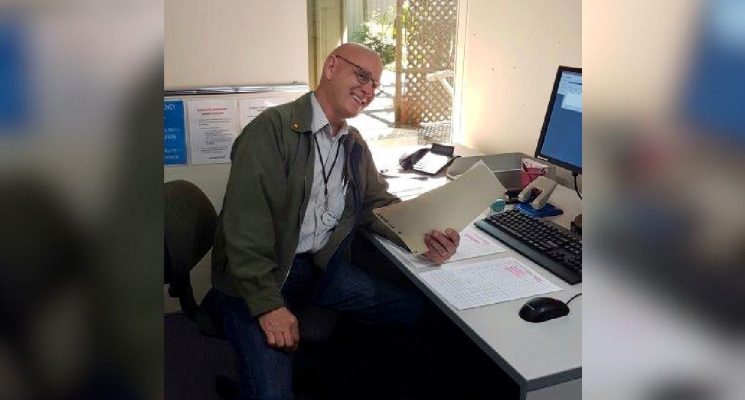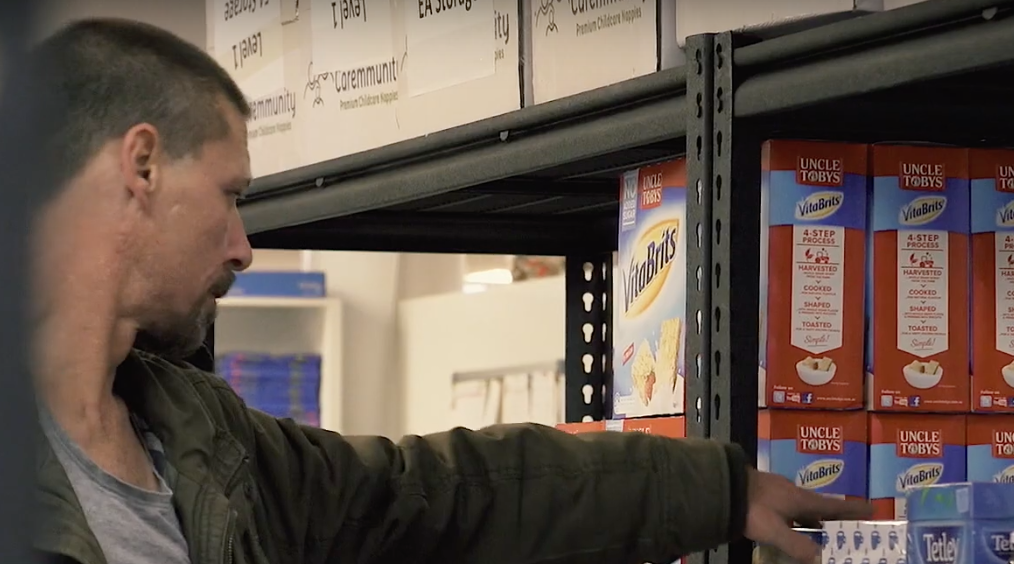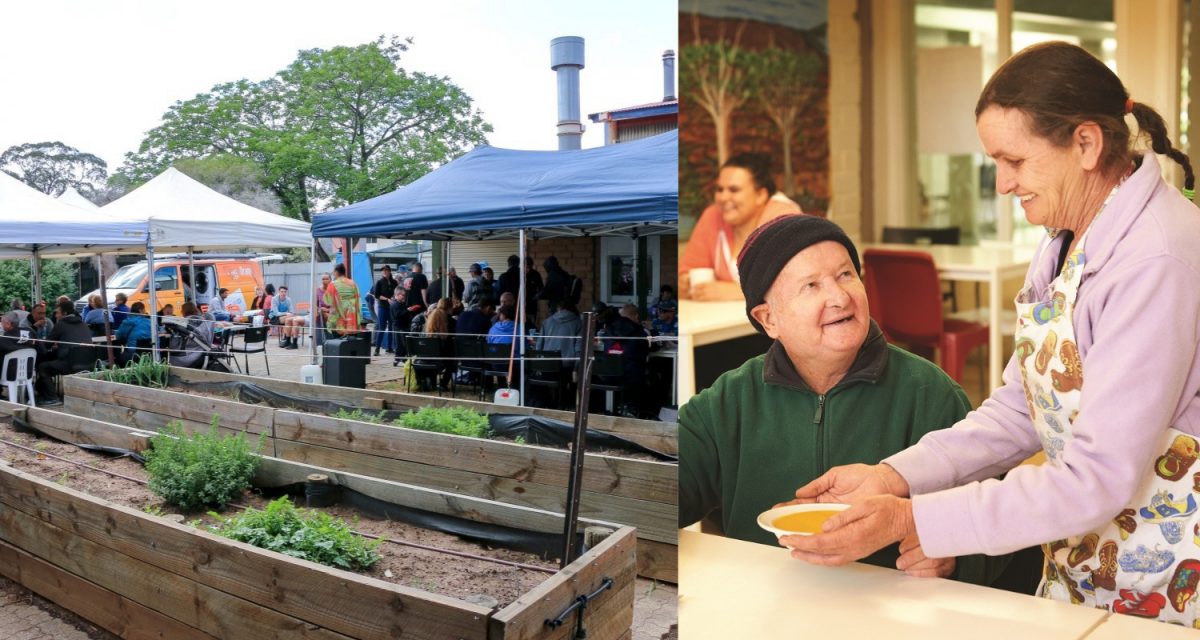
You will struggle to find a person more dedicated to their local community than AnglicareSA volunteer Ross.
As an emergency assistance volunteer at AnglicareSA’s Elizabeth Mission, Ross (65) is the first point of call for people who require urgent social support, such as those experiencing homelessness.
He has been doing this for the past six years, conducting the initial one-on-one interviews to connect people to the resources they need during the most difficult time in their lives.
“I have a lot of clients I work with who are homeless or have been victims of domestic violence, and I’m able to put them in contact with say the housing department or a counselling session,” he said.
“I find a lot of people don’t realise what sort of assistance is out there to help them, such as the different concessions, and I’m able to help them with that.
“People come in to get assistance like food relief or blankets and I get to share their experiences and stories… and I’m able to show empathy and put myself in their shoes.”

While helping others overcome their challenges, Ross has been fighting an incredible battle of his own.
Following a career in the army, security and as a highway inspector, in 2002, Ross was diagnosed with a progressive degenerative condition, similar to Parkinson’s disease.
The condition affects the part of the brain that controls balance and coordination, impacting muscle strength, control and mobility, body temperature, and speech.
“It’s going to get worse and there’s unfortunately no cure — and it took me a while to comes to grips with that,” Ross said.
“But once I came to grips with it, I accepted it. You do what you do, and you do it while you can.”
Despite living with the condition for around 18 years now, Ross has continued to volunteer, initially as a youth mentor and, for the past six years, with AnglicareSA.
His beloved hometown of Elizabeth holds a special place in his heart, and Ross’ condition has not stopped him chasing his burning desire to help those around him.
“I can’t sit still — I’ve got to be doing something,” he said.
“The Elizabeth area has been very good to me — I’ve lived in Elizabeth virtually all my life and I felt why not put some back into the community.”

Through the National Disability Insurance Scheme (NDIS), Ross receives support from AnglicareSA’s Disability Services, who have helped Ross to organise physiotherapy, podiatry and speech pathology to meet his day-to-day needs.
“I self-manage it and I find that my volunteer work actually helps a heck of a lot with my condition, because it keeps the brain active and, therefore, I keep the body active too,” he said.
“Mind you I will say, as the day goes on, the brain slows down a little bit.”
Today, as the coronavirus pandemic impacts our communities and the economy, to his great dismay, Ross has had to temporarily stop volunteering and self-isolate.
While initially devastated, he is itching to get back out in the community and keep doing what he loves — helping other South Australians move forward and get back on their feet.
“I really want to stress it’s a team effort here at the Mission — we are family and we work hand in glove together. Honestly, it’s a big part of life. It’s something I will never give up until the day I feel like I can’t contribute.”
As we continue to follow social distancing and isolation policies to protect ourselves and those who are most vulnerable, Ross remains optimistic about what awaits on the other side.
“Stay home, love each other and enjoy life,” he said.
“And as we keep hearing on TV, I know it’s a cliche, but we’re all in this together and we’ll come out.
“And hopefully we’ll come out stronger. I think we will.”
From 18–24 May 2020, it is National Volunteer Week — an important time to celebrate and recognise the amazing contributions volunteers make to our community.